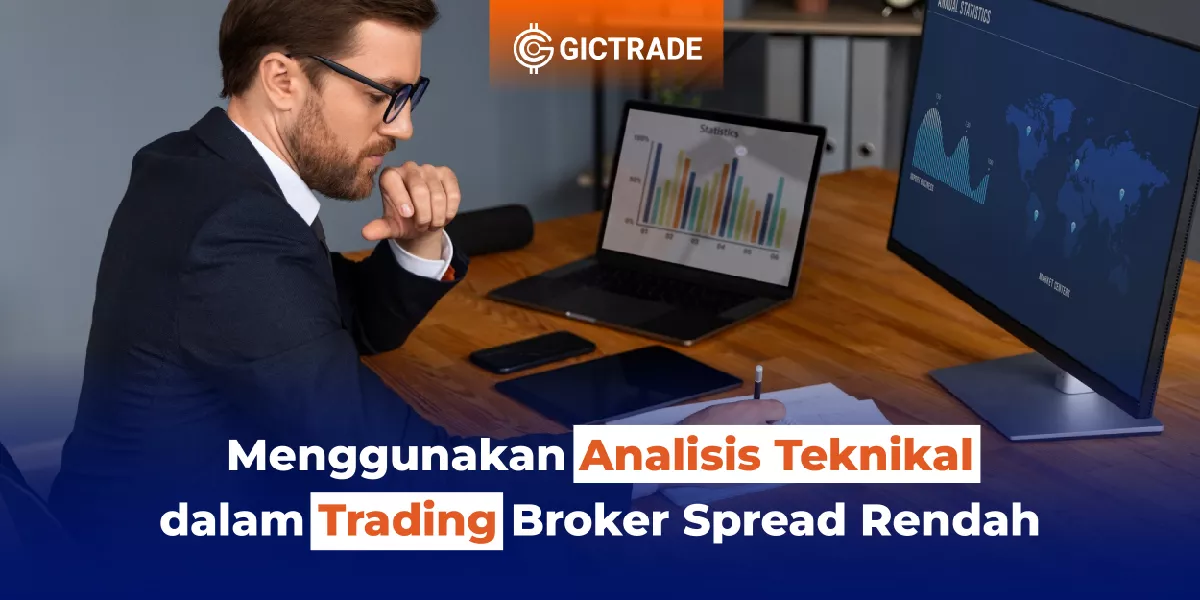What is the GMS?
The General Meeting of Shareholders or GMS is a forum where shareholders have the exclusive authority to obtain information about the company from the Board of Directors/Commissioners and also make decisions for the company. If approved, the input will be a patent order that must be carried out in the future. The GMS acts as the main mechanism to protect the rights of shareholders. The GMS itself is a forum for shareholders to make important decisions related to the capital invested in the company, by paying attention to the provisions of the Articles of Association and existing laws and regulations. With this GMS, it is mandatory for every shareholder present to follow the activities properly to ensure the smooth implementation of meeting activities and be useful for the direction of a company's journey. This General Meeting of Shareholders has been listed in the existing law, the state regulates it in Law No. 40 of 2007 that, the GMS is a place for shareholders to determine the policies of a company. Annual GMS is a GMS whose event or activity is held within a period of once a year or no later than six months with the provision that after the company's financial year period has passed, where the company has the status of a limited liability company (PT). As for the extraordinary GMS, it is a GMS held by a company at any time depending on the needs of the company. This type of GMS will be held when there is a change in the company, both small and major problems. Before proceeding to the purpose of making the GMS, take the time to fill out an internal survey in order to improve the performance that GIC has provided on the GIC platform and application itself.What is the purpose of the GMS?
After understanding what the GMS is, next we will learn the purpose of making this GMS. The purpose of the GMS is, first, the GMS is required to submit a report on the company's activities containing the results of the performance evaluation and discuss the company's implementation report within the scope of social activities or what is called Corporate Social Responsibility (CSR). The purpose of the second GMS is to report the company's financial records in one period to find out the income, amount of capital, profits, and losses received by the company. The purpose of the next GMS is to discuss the company's operational planning for the next period. Furthermore, the supervisory report is provided by the board of commissioners. And the purpose of the last GMS is to discuss and find solutions to every problem experienced by the company in one period in order to overcome the impact of these obstacles and prepare if they encounter similar problems later. The purpose of the GMS has been studied, it's time to fill out the Trader Assessment so that you can consult directly with the GIC Team about how to trade and other things.Duties and Authorities of the GMS
This GMS plays an important role in its implementation. The PT Law expressly states that the GMS has authority that is not given to the Board of Directors or the Board of Commissioners, both within the limits determined by the PT Law itself and the articles of association. These duties and authorities are:- Stipulating amendments to the articles of association of PT.
- Approving the addition and reduction of capital of PT.
- Approve the annual report including the ratification of the financial statements and the report on the supervisory duties of the Board of Commissioners.
- Approve the merger, consolidation, takeover or separation, and also the submission of an application for the PT to be declared bankrupt, the extension of the period of its establishment, and the dissolution of the PT.
- Stipulate the division of duties and authority for the management of board members in the event that the board of directors consists of 2 or more people.
- Appointing members of the board of directors and board of commissioners.
- Decide on the replacement and dismissal of members of the board of directors and board of commissioners.
- Determine the amount of salaries and allowances of members of the board of directors and board of commissioners.
- Give consent to transfer the assets of the PT or make the debt guarantee of the PT assets which is more than 50% of the total net worth of the PT in one or more transactions, whether related to each other or not.
What is the function of the GMS?
The implementation of the General Meeting of Shareholders is an important part of a company. For this reason, this activity will have many benefits and functions that will result from this general meeting. For its functions and benefits, you can see below.- Understand the report of each company's activities. Every activity that has been carried out during a one-year period, there must be a report that must be submitted. So this meeting will provide information to shareholders whether the money you have invested in the business entity is in a stable condition or not.
- There is financial transparency. With the holding of this meeting, it will later provide information related to the company's expenses and income to shareholders.
- There is also payroll transparency to all directors. By holding this general meeting, shareholders also have the right to vote to approve the salary increase of employees, directors, and commissioners. So this employment problem will be more open to all parties.
- Shareholders can also determine who are the members of the board of directors and commissioners. So the benefit that will be felt by shareholders is that they can determine the person who really deserves to occupy the position.
- The next thing is that shareholders can also take part in solving the company's problems. The shareholders also provide solutions to the problems that are being experienced. You can provide suggestions and opinions for the company's progress.
Types of GMS
There are also types of this General Meeting of Shareholders. Based on the regulations in Law Number 40 of 2007, it is stated that GMS is divided into 2 types based on their interests, namely:Annual GMS
This Annual GMS is held once a year. Usually, this Annual GMS is held when the company is closing its books or is doing bookkeeping every year. The mechanism for running the Annual GMS is that the directors and commissioners provide and explain financial statements that outline problems related to the company's finances and capital, income or profit, losses, production growth, and other matters related to the company's achievements or performance. After doing all kinds of things that must be reported and read, then the shareholders will provide statements, suggestions, and inputs, which will be evaluated and discussed at the next GMS period.Extraordinary GMS
Meanwhile, the Extraordinary GMS is held irregularly and scheduled like the Annual GMS. The Extraordinary GMS was held because there were things that needed to be held suddenly. This GMS is held for certain reasons, both big and small problems such as companies that are hit by big problems, the existence of major policies that are planned and will be decided in the near future such as mergers or takeovers of companies, dismissal and appointment of directors and board of commissioners, or it can also be to discuss further discussions from previous meetings because they are complex. After learning about the types of GMS, you can take a moment to invite your closest friends to trade or join as an Affiliate IB so that later you will get additional income when you join the program.
Discussion Content of the GMS
There are also a number of agendas that need to be discussed in this General Meeting of Shareholders. The details of the content of the discussion are:- In connection with the reasons for requests from shareholders, as well as other meeting participants that are considered necessary to be discussed for the Board of Directors, in accordance with the invitation of the General Meeting of Shareholders.
- The discussion or discussion of issues discussed at the General Meeting of Shareholders held by the board of commissioners is about an issue related to the reason for the request of the General Meeting of Shareholders.
- The General Meeting of Shareholders is held based on the determination of the chairman of the district court may only discuss the agenda of the meeting as determined by the chairman of the district court.

Requirements for Obtaining Invitations to GMS
For investors who want to participate in this General Meeting of Shareholders, the conditions that you must have to get an invitation are first, you must have a minimum of 1 lot of shares of the issuer to participate in the maximum GMS owned in the period of 2 days before the recording date or the date of recording of share ownership by KSEI. The second requirement to get an invitation to the GMS is to obtain a Written Confirmation for the GMS (KTUR) which contains information about the name of the shareholder, identity number, address, number of shares, date of listing, as well as the time and implementation of the GMS. This KTUR is brought as proof that you have the right to participate in the GMS. To get this KTUR, you can contact the securities company where you buy shares. The third requirement to get an invitation to the GMS is to bring an Identity Card or ID card which must always be carried out to meet the data validation that will be carried out by the inspection officer.Parties Entitled to Submit GMS
There are several parties who have the right to propose this GMS, namely, the Board of Commissioners and also the Shareholders. The first party that can propose this GMS is the company's board of commissioners. This board of commissioners has the right to propose the procurement of GMS to submit important reports that must be implemented immediately. Usually, the submission report is generally related to complex issues so that a GMS should be held as soon as possible. While the second party is the shareholder. This submission can be made by shareholders on the initiative of one or a group of shareholders with a minimum limit on the number of shareholders representing at least 10% of the total amount. If the submission of the GMS is approved, the final decision on the procurement of the GMS will be made if there is at least half a percent of the votes of the total number of shareholders.When will the GMS be held?
As mentioned earlier in the type of General Meeting of Shareholders, the time of holding this GMS is also based on the type of GMS. There are two GMS that are usually held, namely, the Annual GMS and also the Extraordinary GMS. The annual GMS will be held within a period of once a year or no later than six months in accordance with its provisions, namely after the company's financial year period has passed, where the company has the status of a limited liability company. As for the extraordinary GMS, a company will be held at any time depending on the company's needs if they are in need of a General Meeting of Shareholders to solve a problem, both big and small.
Procedures for Holding GMS
The holding of the GMS is preceded by a request or summons. The request for the implementation of the GMS is made by the Board of Commissioners or 1 or more shareholders who together represent 1/10 or more of the total number of shares with voting rights, except for the Articles of Association (AD) which specify a smaller number. The request was submitted to the Board of Directors with a Registered Letter accompanied by the reasons why it was necessary to hold a GMS. After the Registered Letter is received, the Board of Directors is obliged to summon the GMS within a period of no later than 15 years from the date the request for the GMS is received. And if the Board of Directors does not convene the GMS, then you can submit the request for the holding of the GMS proposed by you as a shareholder back to the Board of Commissioners. After that, the Board of Commissioners is obliged to summon the GMS with a deadline of 15 days from the date the request for the GMS is received. And if the Board of Directors or the Board of Commissioners does not summon the GMS within the said period, the shareholders who request the holding of the GMS can submit an application to the chairman of the district court whose jurisdiction includes the place of residence of the company to determine the granting of permission to the applicant who conducts the summoning of the GMS himself. It should be noted that the application can also be rejected by the chairman of the district court if the applicant cannot prove that the requirements have been met and the applicant has a reasonable interest in holding a GMS. The invitation of the GMS is carried out by the Board of Directors to the shareholders using a Registered Letter or an advertisement in the newspaper. In the invitation of this GMS, the date, time, place, and agenda of the meeting will be included accompanied by a notification that the materials to be discussed in the GMS are available at the company's office from the date of the invitation of the GMS to the date the GMS is held. In certain cases, the summoning of the GMS can be carried out by the Board of Commissioners or shareholders based on the determination of the chairman of the district court. This summons is held within a period of 14 days before the date of the GMS being held without taking into account the date of the summons and the date of the GMS. If the summons is not in accordance with these provisions, the resolution of the GMS remains valid if all shareholders with voting rights are present or represented at the GMS and the decision is approved by unanimous vote.
Process of Holding GMS
There is also a process of implementing the GMS for those of you who have obtained to participate in this General Meeting of Shareholders, the process is:- Attendance that has been appointed based on the Power of Attorney
- The rights and obligations that are entitled to be obtained regarding meeting event information and materials related to the meeting agenda as long as it does not conflict with the interests of the public company.
- The chairman of the meeting consists of members of the Board of Commissioners who have been previously elected by the Board of Commissioners itself.
- The Rules of Conduct must also be given to the shareholders who are present by reading when the General Meeting of Shareholders begins. In addition, there is information that must be submitted at the opening such as the general condition of the public company, the agenda of the meeting, the decision-making mechanism, and also the procedure for asking questions or opinions.
- The decision-making process can be based on deliberation and consensus. If it is not achieved, then voting or voting can be carried out.
- For attendance, the GMS can be attended by more than half of the total number of shares with voting rights present or represented.
- As for the decision, it must be approved by half of all shares with voting rights present at the General Meeting of Shareholders.
 Last:
Last: 







